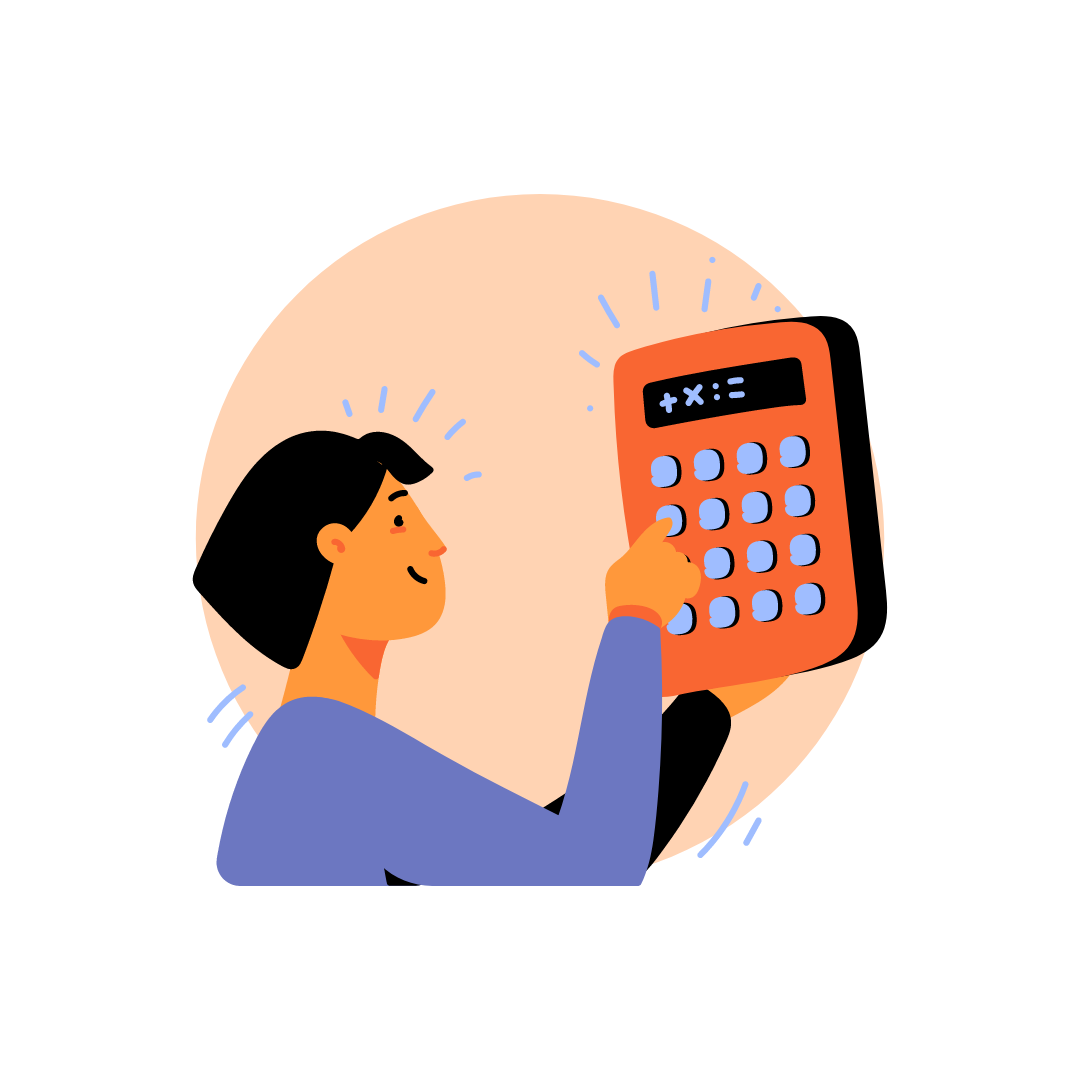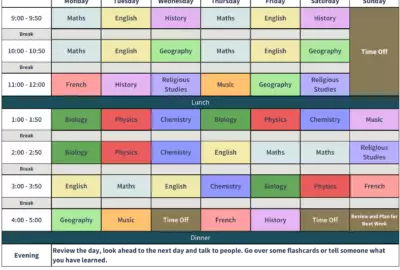
Along with English and Science, GCSE maths remains a compulsory exam for all students in England and Wales. A strong performance in the exam will help facilitate your entry to higher education at university level, and understanding the content and expectations of GCSE maths exams is the first step towards success. This guide aims to demystify the exams and equip you to approach them with confidence. Remember, Ivy Education has excellent, experienced maths tutors ready to guide you through the process, overcome any obstacles and enable you to achieve your potential.
Introduction to GCSE Maths
Over the years, the GCSE maths exam has changed to reflect the world we live in. Whilst key mathematical concepts remain the same, there has been a shift in emphasis towards developing mathematical thinking and problem-solving, in a range of contexts. Increasingly, these are the skills that employers are looking for.
GCSE maths remains a pre-requisite for acceptance onto many A Level courses, as well as higher education at university level, and a requirement for many jobs.
2.0 Top
Exam Boards & GCSE Maths Topics
There are three main exam boards providing and marking GCSE maths papers: AQA, Pearson Edexcel and OCR.
All the exam boards cover common topics in maths: number, algebra, ratio and proportion, geometry and measure, probability, and statistics. Where they vary is in question style, and so it is important to become familiar with the specifications of the particular exam board you, or your school / college, are using.
Our specialist maths tutors at Ivy Education are familiar with the specifications of each board and can ensure that your support is targeted at achieving success in the right exam.
3.0 Top
Number of Exams and Assessment
GCSE maths is assessed entirely through written exams, with no coursework. All the exam boards have three exams, held in late May to early June. The exams are one hour and 30 minutes long and consist of two calculator and one non-calculator papers, although the order of these varies. AQA and Edexcel award 80 marks per paper, OCR 100 marks.
Mock exams, such as those offered by Ivy Education, can be really useful for tracking progress and identifying areas for improvement. Closer to the day of the exam, they are useful for honing exam technique and working on timing.
4.0 Top
Entry Tiers: Foundation & Higher GCSE Maths
GCSE maths is studied and examined at two tiers, foundation and higher. If you take foundation tier maths GCSE you can achieve grades from 5 to 1. With the higher tier you can achieve grades from 9 to 4. You can be awarded grades 5 to 3 on both papers (with a “safety net” grade 3 on the higher paper for students who just miss a grade 4), and exam papers may well include questions from both tiers. A U grade, meaning “ungraded” can still be awarded (more about grades later!).
The decision on which tier to take is largely influenced by teachers as well as students’ past performance. If you are unsure or not happy with the pathway you are on, you can talk to your maths teacher or Head of Department. They will have taken several factors into consideration in choosing a tier for you, so think carefully about any requests to change. Our tutors at Ivy Education can help with assessment and tuition at all levels, to ensure you approach the exam with confidence.
5.0 Top
Changes in Content
As mentioned above, the content of GCSE maths has changed to foster a broader and deeper understanding of the curriculum. Rather than the rote learning of lots of facts, there has been a shift towards problem-solving and critical thinking.
The objectives for all exam boards are the same, and are set by Ofqual (The Office of Qualifications and Examinations Regulation):
- AO1: Use and apply standard techniques.
- AO2: Reason, interpret and communicate mathematically.
- AO3: Solve problems within mathematics and in other contexts.
There is a difference in weighting for the objectives across the two tiers. The foundation exam gives a weighting to AO1 of 50%, as opposed to 40% in the higher exam. Similarly, the foundation tier gives a greater weighting to number and ratio and proportion topics, whilst the higher tier favours algebra in particular.
All the objectives emphasise the need for students to be able to deduce, infer, interpret, reason, make connections and evaluate results. This evolving emphasis is to help students prepare for an ever more challenging marketplace when looking for jobs.
6.0 Top
GCSE Maths Timeline
All the maths you have learned from Reception onwards, will have been preparing you for the GCSE, from number lines and multilink cubes, to learning your times tables and making shape nets from cereal boxes. Generally however, the journey towards GCSE maths starts in Year 9 or 10, depending on the school or college, and will usually be examined in the spring / summer of Year 11.
This year, 2024, the exam dates for all boards are as follows:

All exams are in the morning, and foundation and higher tier exams are taken on the same days. Results will be published on Thursday, 22nd August 2024.
7.0 Top
GCSE Exam Format
So how do the three exam boards differ? The general format is the same with three 90-minute exams. The precise specifications can differ from year to year, so it is important you are familiar with the most up-to-date exam format.
For example, AQA used to offer some multiple-choice questions at the start of each paper, but these were replaced in 2023 with short accessible open answer questions. AQA and Edexcel mark papers out of 80 while OCR award up to 100 marks per paper, which may allow for more marks to be given for showing methods. All three boards say their papers get progressively more difficult as you work through them.
You may not be able to choose which exam board you are preparing for, but the expert guidance of an Ivy Education GCSE tutor will ensure you are fully prepared for the right board.
8.0 Top
Exam Resources
Our blogs on How to Revise GCSE maths, The Ultimate Guide to GCSE Revision and How to Get All 9s in your GCSEs have invaluable information and insight on how best to prepare for your exams including revision tips and how to manage time pressures.
Textbooks such as those published by CGP are excellent revision and practise guides but are not a substitute for a tutor who can tailor their support to your exact needs and help you overcome any difficulties. Likewise, past papers are available from all the boards, but remember that exam specifications change so you would need guidance to ensure you are covering all the current topics. BBC Bitesize is a great place to go for interactive quizzes and revision tips on all maths topics.

Exam Preparation Tips
We may all have different study preferences, but there are a few key principles that can help you prepare for the GCSE maths exams.
First, if you are unsure about a topic or lack confidence, seek help! Identifying and addressing any mistakes you are making is an excellent way to make progress. A schedule is really useful, not just to help you plan your time and make sure you are covering all the topics, but also to ensure you are scheduling breaks for yourself.
See our Ivy Education blogs mentioned above for a full range of advice, guidance and tips.
10.0 Top
Exam Day
So you have worked hard, revised all the topics, used our tips to help you plan your revision timetable, and at last exam day has arrived. The most important things you can do at this stage, is to make sure you are well rested, have a good breakfast, stroke the dog / cat / hamster and try to stay calm. You’ve got this! Oh and don’t forget a black pen, pencil, approved calculator, and any other equipment you are allowed to bring, all in a clear pencil case.
11.0 Top
Results Day
Just when the exams seem a hazy memory and you are enjoying the summer, results day comes around. This year, 2024, results day is on Thursday 22nd August. Unless you have made special arrangements beforehand, this will usually mean going to collect them in person.
We know this can be an anxious time, so think about how you would best like to receive your results – arrange to go with a good friend, or even a family member. Remember that everyone will have different expectations and different outcomes – be kind to yourself, celebrate your successes and your progress, and look forward to what the future will bring.
12.0 Top
GCSE Grades
We said we would come back to grades. The rollout of the numerical system used by all exam boards started in 2017 – probably before you even started your secondary school journey! The grades go from 9 to 1, with 9 being the highest grade and equivalent to an old A*. Grade 4 is a “standard pass” and grade 5 a “strong pass”.
For entry to many A Level courses and for university entry, it is important to achieve at least a grade 5. To continue with maths beyond GCSE, most colleges will require at least a grade 7.
A numerical system always allows for more grades to be added in the future – Grade 10/ A** anyone?
13.0 Top
GCSE Maths with Ivy Education Tutors
There are several ways Ivy Education can help you prepare for GCSE maths, so that you can approach the exams with confidence. Our highly experienced GCSE tutors can develop a tailored programme suited to your needs and objectives and support you with revision planning, exam technique and managing your time. We also offer mock exams and revision courses.
14.0 Top
Taking Maths to the Next Level Post-GCSE
For some of you, maths GCSE may spell the end of your formal mathematical journey, although the government has expressed a desire for all pupils to continue to study maths between the age of 16-18. This doesn’t mean that everyone will be taking maths A Level, just that some form of maths education will continue beyond GCSE. Watch this space.
Of course, for other students, A level is exactly where you want to go – whether maths, statistics, pure maths or further maths. Some schools may require a Grade 7 or above at GCSE in order to proceed to a maths A Level course.
Maths A Level in itself is a highly valued qualification that can open doors to many jobs as well as further study at university.
15.0 Top
FAQs
GCSE covers in greater depth all the areas you will have studied since your primary school maths lessons: number, algebra, ratio and proportion, geometry and measure, probability and statistics. There is an emphasis on reasoning and problem solving.
Maths sometimes has a reputation for being difficult, and we often hear “I can’t do maths”. It is often a matter of confidence rather than ability, and with the right tutor to guide you, everyone can experience success. You need to develop a strong basis in all the topic areas, and then practise with past papers and questions so that you are confident in applying the knowledge and skills you have learnt.
There are two levels of GCSE maths, foundation and higher. For foundation maths, you can get from a Grade 5 to Grade 1, and for higher maths, you can get a Grade 9 to Grade 4. Which exam you take usually depends on your teacher, who will use a range of data to help them make that choice. If you feel you are studying for the wrong tier, talk to them in the first instance.
Each of the three main exam boards have three 90-minute exams, two calculator papers and one where you are not allowed a calculator.
Working with a tutor can have a whole range of benefits when studying for your maths GCSE. A tutor will assess your strengths and identify any areas of weakness; they will develop a programme of work and support tailored to your individual needs; they can help you build your confidence as you work through questions and problems with increasing independence, and they can help you devise a revision plan that suits your learning style. At Ivy Education we pride ourselves on working with excellent tutors who not only understand the rigours of exams but will also help you look after your well-being.
16.0 Top
Conclusion
We hope you have found this Guide interesting and informative. Understanding the exam specifications, format, objectives, and grading system, as well as developing study and revision schedules, will all help improve your confidence.
Need More Help?
We are experts in providing bespoke online and in-person one-to-one GCSE tutoring and iGCSE tutoring in London.
View Our GCSE Tuition PageOther Articles

IGCSE vs GCSE: Differences You Should Know in 2025

What are IGCSEs?

Free GCSE Revision Timetable Template

How to Revise GCSE Maths

The Ultimate Guide to GCSE Revision

How to Get All 9s in your GCSEs?

How to Revise for English Literature GCSE
As featured in











